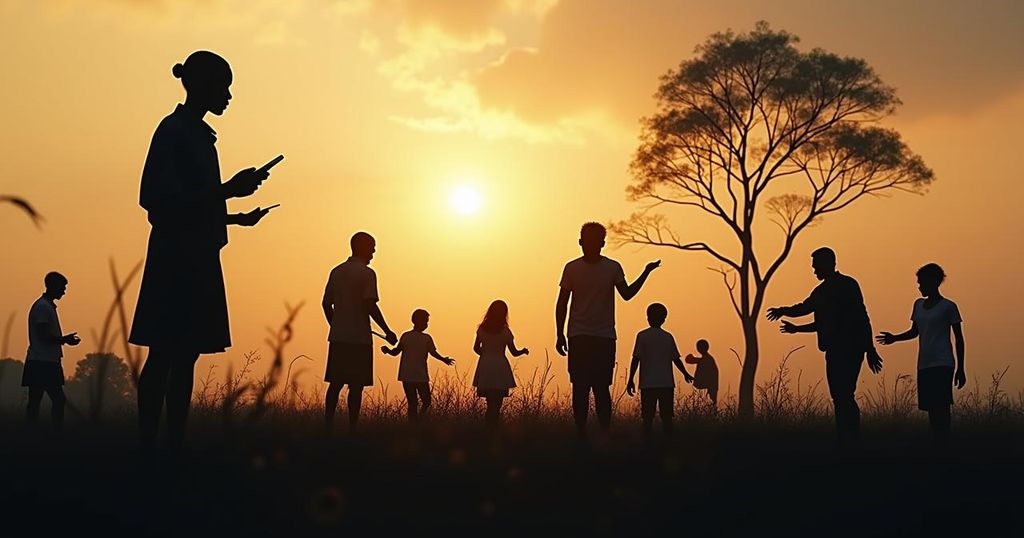Congo Initiates Mpox Vaccination Campaign Amidst Growing Health Crisis

Congo has launched a vaccination campaign against mpox following a WHO emergency declaration. With 265,000 doses provided by the EU and US, the focus is on protecting at-risk adults and healthcare workers in Goma. Despite the high infection rates, vaccines for children are expected from Japan. Access to vaccines remains limited, posing challenges for the 1.4 billion people in Africa. Experts warn of outbreak risks in areas affected by conflict and displacement.
On October 5, 2024, authorities in the Democratic Republic of Congo initiated a vaccination campaign against mpox, following a global emergency declaration by the World Health Organization (WHO) roughly two months prior due to a significant outbreak that transcended African borders. The vaccination drive commenced in Goma, North Kivu province, utilizing a donation of 265,000 vaccine doses from the European Union and the United States. In light of the crisis, health professionals in the region have faced considerable pressure to contain the newly emergent strain of mpox, which has reportedly affected over 30,000 individuals and resulted in 859 fatalities in Congo this year alone. Notably, the country accounts for a staggering 80 percent of all mpox cases reported in Africa this year. Despite the high incidence of infections primarily among children under 15, the vaccines currently being distributed are intended solely for adults, specifically targeting at-risk populations and frontline healthcare workers. Health Minister Roger Kamba emphasized the implementation of strategic measures to ensure comprehensive vaccination coverage for these groups. Additional vaccine doses, specifically tailored for children, are anticipated from Japan in the near future. Historically, mpox, previously recognized as monkeypox, remained largely unobserved within Africa until a global outbreak emerged in 2022, highlighting a stark disparity in vaccination availability between wealthy nations and those in Africa. Currently, the continent faces a daunting challenge in accessing sufficient vaccine supplies, with only 5.9 million doses committed for distribution by the end of the year as reported by Dr. Jean Kaseya, the head of the Africa CDC. The escalating situation is particularly concerning in North Kivu, where Dr. Jean Bruno Ngenze, the WHO representative in the province, warned of significant outbreak risks stemming from social conditions in displacement camps. Many health practitioners express optimism regarding the vaccination initiative, positing that broader immunization could substantially mitigate the virus’s spread. However, the persistence of armed conflict in eastern Congo complicates health infrastructure and exacerbates the humanitarian crisis.
The Democratic Republic of Congo has been grappling with a surge in mpox cases, which have significantly impacted vulnerable populations, particularly children and those in humanitarian crisis situations. Following the declaration of a global health emergency by the WHO due to the mpox outbreak, local authorities have prioritized vaccination efforts to curb its spread. The eastern region, characterized by conflict and humanitarian distress, has witnessed the ramifications of this virus acutely. Access to vaccines has been a significant hurdle for many African nations, exacerbated by the inequality in global health responses. The current vaccination campaign seeks to address pressing health needs while drawing on international support from entities such as the European Union and the United States.
The commencement of mpox vaccinations in the Democratic Republic of Congo marks a critical response to a public health emergency that has affected thousands. While the initiative aims to protect at-risk populations and frontline workers, the challenges of access and equity remain pressing issues requiring continued attention from both local authorities and international partners. As the vaccination drive progresses, stakeholders hope for a marked decline in mpox infections and fatalities, ultimately leading to better health outcomes for the vulnerable communities in the region. The ongoing commitment to expand vaccine availability and bolster healthcare infrastructure will be vital in tackling this outbreak effectively.
Original Source: apnews.com







